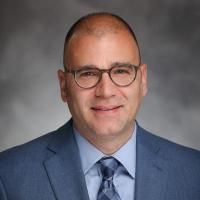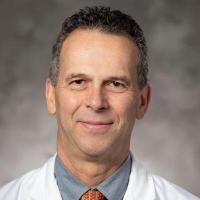Neutralization Takes Precedence Over IgG or IgA Isotype-related Functions in Mucosal HIV-1 Antibody-mediated Protection.
Journal Title
Journal ISSN
Volume Title
Repository Usage Stats
views
downloads
Citation Stats
Attention Stats
Abstract
HIV-1 infection occurs primarily through mucosal transmission. Application of biologically relevant mucosal models can advance understanding of the functional properties of antibodies that mediate HIV protection, thereby guiding antibody-based vaccine development. Here, we employed a human ex vivo vaginal HIV-1 infection model and a rhesus macaque in vivo intrarectal SHIV challenge model to probe the protective capacity of monoclonal broadly-neutralizing (bnAb) and non-neutralizing Abs (nnAbs) that were functionally modified by isotype switching. For human vaginal explants, we developed a replication-competent, secreted NanoLuc reporter virus system and showed that CD4 binding site bnAbs b12 IgG1 and CH31 IgG1 and IgA2 isoforms potently blocked HIV-1JR-CSF and HIV-1Bal26 infection. However, IgG1 and IgA nnAbs, either alone or together, did not inhibit infection despite the presence of FcR-expressing effector cells in the tissue. In macaques, the CH31 IgG1 and IgA2 isoforms infused before high-dose SHIV challenge were completely to partially protective, respectively, while nnAbs (CH54 IgG1 and CH38 mIgA2) were non-protective. Importantly, in both mucosal models IgG1 isotype bnAbs were more protective than the IgA2 isotypes, attributable in part to greater neutralization activity of the IgG1 variants. These findings underscore the importance of potent bnAb induction as a primary goal of HIV-1 vaccine development.
Type
Department
Description
Provenance
Citation
Permalink
Published Version (Please cite this version)
Publication Info
Astronomo, Rena D, Sampa Santra, Lamar Ballweber-Fleming, Katharine G Westerberg, Linh Mach, Tiffany Hensley-McBain, Laura Sutherland, Benjamin Mildenberg, et al. (n.d.). Neutralization Takes Precedence Over IgG or IgA Isotype-related Functions in Mucosal HIV-1 Antibody-mediated Protection. EBioMedicine, 14. pp. 97–111. 10.1016/j.ebiom.2016.11.024 Retrieved from https://hdl.handle.net/10161/13341.
This is constructed from limited available data and may be imprecise. To cite this article, please review & use the official citation provided by the journal.
Collections
Scholars@Duke

Justin Joseph Pollara
Dr. Justin Pollara is a member of the Duke Human Vaccine Institute and the Duke Center for Human Systems Immunology, and is Associate Director of the Duke Center for AIDS Research (CFAR) Developmental Core. He received his PhD from North Carolina State University and completed his postdoctoral training as a recipient of the Duke NIH Interdisciplinary Research Training Program in AIDS (IRTPA) T32 award in the laboratory of Dr. Guido Ferrari. He joined the faculty of the Duke Department of Surgery in 2016.
A common theme of research performed in Dr. Pollara’s laboratory is a focus on interactions between innate and adaptive immunity. Dr. Pollara’s work has contributed significantly to the understanding of the roles played by non-neutralizing antibodies in limiting HIV-1 disease progression, and in prevention of infection or control of virus replication in preclinical and clinical HIV-1 vaccine trials. Dr. Pollara’s research has also identified specific components of the immune response that reduce the risk of vertical transmission of both HIV-1 and human cytomegalovirus. The Pollara lab characterizes the phenotype and functionality of antibody-interacting innate immune cells and explores how natural genetic variation in antibodies and antibody receptors may contribute to vaccine responsiveness and immune competence. Further, with a strong interdisciplinary and collaborative approach, the Pollara Lab has broadened its scope beyond infectious diseases and is now actively leading studies aimed at understanding how inflammation, antibodies, innate immune cells, and newly described populations of T cells promote allograft injury that underlies rejection of transplanted organs.

Thomas Norton Denny
Thomas N. Denny, MSc, M.Phil, is the Chief Operating Officer of the Duke Human Vaccine Institute (DHVI), Associate Dean for Duke Research and Discovery @RTP, and a Professor of Medicine in the Department of Medicine at Duke University Medical Center. He is also an Affiliate Member of the Duke Global Health Institute. Previously, he served on the Health Sector Advisory Council of the Duke University Fuquay School of Business. Prior to joining Duke, he was an Associate Professor of Pathology, Laboratory Medicine and Pediatrics, Associate Professor of Preventive Medicine and Community Health and Assistant Dean for Research in Health Policy at the New Jersey Medical School, Newark, New Jersey. He has served on numerous committees for the NIH over the last two decades and currently is the principal investigator of an NIH portfolio in excess of 65 million dollars. Mr. Denny was a 2002-2003 Robert Wood Johnson Foundation Health Policy Fellow at the Institute of Medicine of the National Academies (IOM). As a fellow, he served on the US Senate Health, Education, Labor and Pensions Committee with legislation/policy responsibilities in global AIDS, bioterrorism, clinical trials/human subject protection and vaccine related-issues.
As the Chief Operating Officer of the DHVI, Mr. Denny has senior oversight of the DHVI research portfolio and the units/teams that support the DHVI mission. He has extensive international experience and previously was a consultant to the U.S. Centers for Disease Control and Prevention (CDC) for the President’s Emergency Plan for AIDS Relief (PEPFAR) project to oversee the development of an HIV and Public Health Center of Excellence laboratory network in Guyana. In September 2004, the IOM appointed him as a consultant to their Board on Global Health Committee studying the options for overseas placement of U.S. health professionals and the development of an assessment plan for activities related to the 2003 PEPFAR legislative act. In the 1980s, Mr. Denny helped establish a small laboratory in the Republic of Kalmykia (former Soviet Union) to improve the care of children with HIV/AIDS and served as a Board Member of the Children of Chernobyl Relief Fund Foundation. In 2005, Mr. Denny was named a consulting medical/scientific officer to the WHO Global AIDS Program in Geneva. He has also served as program reviewers for the governments of the Netherlands and South Africa as well as an advisor to several U.S. biotech companies. He currently serves as the Chair of the Scientific Advisory Board for Grid Biosciences.
Mr. Denny has authored and co-authored more than 200 peer-reviewed papers and serves on the editorial board of Communications in Cytometry and Journal of Clinical Virology. He holds an M.Sc in Molecular and Biomedical Immunology from the University of East London and a degree in Medical Law (M.Phil) from the Institute of Law and Ethics in Medicine, School of Law, University of Glasgow. In 1991, he completed a course of study in Strategic Management at The Wharton School, University of Pennsylvania. In 1993, he completed the Program for Advanced Training in Biomedical Research Management at Harvard School of Public Health. In December 2005, he was inducted as a Fellow into the College of Physicians of Philadelphia, the oldest medical society in the US.
While living in New Jersey, Mr. Denny was active in his community, gaining additional experience from two publicly elected positions. In 2000, Mr. Denny was selected by the New Jersey League of Municipalities to Chair the New Jersey Community Mental Health Citizens’ Advisory Board and Mental Health Planning Council as a gubernatorial appointment.

Guido Ferrari
The activities of the Ferrari Laboratory are based on both independent basic research and immune monitoring studies. The research revolves around three main areas of interest: class I-mediated cytotoxic CD8+ T cell responses, antibody-dependent cellular cytotoxicity (ADCC), gene expression in NK and T cellular subsets upon infection with HIV-1. With continuous funding over the last 11 years from the NIH and Bill & Melinda Gates Foundation along with many other productive collaborations within and outside of Duke, the Ferrari Lab has expanded its focus of research to include the ontogeny of HIV-1 specific immune responses that work by eliminating HIV-1 infected cells and how these can be induced by AIDS vaccine candidates.

David Charles Montefiori
Dr. Montefiori is Professor and Director of the Laboratory for HIV and COVID-19 Vaccine Research & Development in the Department of Surgery, Division of Surgical Sciences at Duke University Medical Center. His major research interests are viral immunology and HIV and COVID-19 vaccine development, with a special emphasis on neutralizing antibodies.
Multiple aspects of HIV-1 neutralizing antibodies are studied in his laboratory, including mechanisms of neutralization and escape, epitope diversity among the different genetic subtypes and geographic distributions of the virus, neutralizing epitopes, requirements to elicit protective neutralizing antibodies by vaccination, optimal combinations of neutralizing antibodies for immunoprophylaxis, and novel vaccine designs for HIV-1. Dr. Montefiori also directs large vaccine immune monitoring programs funded by the NIH and the Bill & Melinda Gates Foundation that operate in compliance with Good Clinical Laboratory Practices and has served as a national and international resource for standardized assessments of neutralizing antibody responses in preclinical and clinical trials of candidate HIV vaccines since 1988.
At the onset of the COVID-19 pandemic he turned his attention to SARS-CoV-2, with a special interest in emerging variants and how they might impact transmission, vaccines and immunotherapeutics. His rapid response to emerging SARS-CoV-2 variants of concern provided some of the earliest evidence of the potential risk the variants pose to vaccines. In May 2020, his laboratory was recruited by the US Government to lead the national neutralizing antibody laboratory program for COVID-19 vaccines.
His laboratory utilizes FDA approved validated assay criteria to facilitate regulatory approvals of COVID-19 vaccines. He has published over 750 original research papers that have helped shape the scientific rationale for antibody-based vaccines.

Georgia Doris Tomaras
Dr. Georgia Tomaras is a tenured Professor of Surgery, Professor of Immunology, Professor of Molecular Genetics and Microbiology and is a Fellow of the American Academy of Microbiology (AAM) and a Fellow of the American Association for the Advancement of Science (AAAS). Dr. Tomaras is Co-Director of the Center for Human Systems Immunology (CHSI) Duke University and Director of the Duke Center for AIDS Research (CFAR). Her national and international leadership roles include: Executive Management Team (EMT) leader and mPI for the HIV Vaccine Trials Network (HVTN); Director of Lab Sciences (HVTN); and Chair of NIH Vaccine Research Center (VRC) Board of Scientific Counselors. Her prior leadership roles include serving as the Director of Research, Duke Human Vaccine Institute (DHVI); Director of the DHVI Training Program; Associate Director of DHVI Research; Co-Director of the Interdisciplinary Research Training Program in AIDS (IRTPA) Duke; Chair of the National Institutes of Health (NIH) AIDS Vaccine Research Subcommittee (AVRS), and Advisory Counsel member of the National Institutes of Health (NIH) National Institute of Allergy and Infectious Diseases (NIAID). Dr. Tomaras’ primary research focus is deciphering mechanisms of protective human immunity and identification of immune correlates of protection to further development of effective vaccines against infectious diseases.
Unless otherwise indicated, scholarly articles published by Duke faculty members are made available here with a CC-BY-NC (Creative Commons Attribution Non-Commercial) license, as enabled by the Duke Open Access Policy. If you wish to use the materials in ways not already permitted under CC-BY-NC, please consult the copyright owner. Other materials are made available here through the author’s grant of a non-exclusive license to make their work openly accessible.
